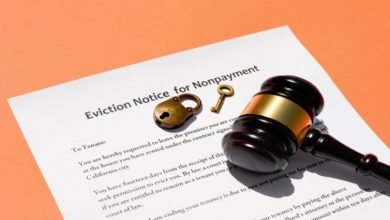10 Things to Keep in a Fireproof File Cabinet or Safe

This article will describe how to make a fireproof safe. Get these ten items out of your car, wallet, and drawers and put them somewhere safe– literally. A fireproof safe can keep all of the documents that protect you, your property, and your loved ones secure in the event of practically any disaster, as well as allowing you to preserve all of your important information in one convenient, private, and burglar-proof area. And if you’re not in a position to have a heavy, high-quality safe right now, I’ve got you covered!
In this article, you can know about Fireproof Safe here are the details below;
Why not a bank’s safe security box?
There are numerous reasons why a home fire-resistant safe is preferable to a bank box. Most significantly, many of the documents you’ll save are things you’ll need at a moment’s notice rather than waiting for the bank to open.
After a family member passes away, “packages are generally sealed when the bank receives a death notice.”
According to CBS, estate agents are required to provide court papers to the bank in order to open a sealed safe deposit box. During a crisis, when medical and legal documents are critical, you don’t want to spend the entire weekend trying to locate them.
Buying in a Fire-Proof Safe
This is probably the most boring way to spend your money, but if the worst happens and your safe preserves your essential documents, you’ll be grateful for every penny spent. “Try to select a safe that can be bolted to the floor and has at least a one-hour fire rating,” says Barry Izsak, president of the National Association of Specialist Organizers, in Real Simple. Also, if you’re going to live on a high floor, pick one with effective protection.”
According to Mint, “If you purchase a low-cost safe, you can end up being regretful for the decision as many of these safes barely hold up against an hour in a fire.”
If You Can’t Presently Afford a Safe, Freezer it Is
When I was reading a conversation on an American Bar Association forum, I was shocked at how many legal professionals suggested storing important documents in Ziplock bags in the freezer, despite the fact that freezers are supposed to survive most fires. Your heirs will have easy access to your papers (no need to figure out the supported code or find a key), but your personal privacy will be compromised– and you’ll need to make sure family members know where to go for your documents!
What Should I Store in a Fireproof Case?
Here’s what you need to keep in your lovely safe– or cleared space in your freezer– once you’ve bought it.
1. Insurance coverage Info
One of the first things you’ll have to deal with if your home is damaged by a fire, tornado, flood, or typhoon is insurance. “You’ll need this information immediately now if your house suffers damage in a fire,” CBS recommends, adding that “you’ll need this information right now if your house suffers damage in a fire.”
2. Medical Documents
According to LegalZoom, you’ll need paperwork for your medical insurance coverage, including “a list of your family’s medical professionals, prescription medications, and contact information for all drug stores you use,” as well as “a list of your family’s medical professionals, prescription medications, and contact information for all drug stores you use.” “You could need these to receive new prescriptions that you take on a regular basis.”
3. Birth Certificates
A birth certificate is required for everything, according to Real Simple– and my personal experience– “to enlist in schools or the military; to obtain a passport; to obtain a chauffeur’s license or a marital relationship license if you don’t have a passport; to obtain government and private benefits” (such as insurance coverage and retirement advantages). You’ll also need your child’s birth certificate to enroll him or her in basic school or Little League.”
Obtaining a copy of your family record is not difficult or expensive, so you can keep one in your fireproof safe, one in your secure deposit box, and one with a relative.
4. Passport
The saying “passport to the globe” comes from the fact that a passport is indeed your passport to the world.
A passport will cover all of your ID needs if your wallet or bag is stolen or misplaced, will allow you to travel to other countries, and will come in handy whenever two or more kinds of visual ID are required.
5. Social Security Card
Real Simple provides several reasons why you’d need a Social Security card, including “to apply for a job or a driver’s license; to enroll in college classes; possibly to acquire insurance or Medicaid,” but I tend to use mine far more frequently than that. This is a vital piece of identification that you’ll want to keep safe.
6. Wills
The majority of legal representatives who responded to the American Bar Association’s poll suggested that customers maintain one will in the law office’s safe or security deposit box. Copies of the order should be retained in the client’s and executor’s fireproof cases, implying that your will should be kept secure in three different locations.
7. Financial Documents
If there was ever a time when you needed to access your funds, it would be shortly after a house fire.
Whether or whether your house is ever wrecked, you’ll also want to keep “essential documents linked with financial investments, retirement plans, bank account, and associated contact information,” according to Legalzoom.
8. Home Deed and Automobile Title
These are proof that you are the owner of what you own! They “would be required if you’re offering or refinancing your house or residence, or changing the title for estate-planning purposes,” according to Real Simple.
9. Other Legal Documents
“Powers of attorney, living wills, healthcare proxies– both for yourself and for anybody else for whom you are designated attorney-in-fact or healthcare surrogate– both for yourself and for anyone else for whom you are designated attorney-in-fact or healthcare surrogate,” according to CBS. These files may be extremely useful in the event of a tragedy.
10. Photos
Stay “CDs or an external hard disc holding digital copies of all household images”– or other beloved photos– in your safe, according to Legalzoom, but you’ll have to keep up with technological advancements. You don’t want to save your favorite vacation photos to a floppy disc or a zip drive just to discover that they’re no longer accessible years later.




